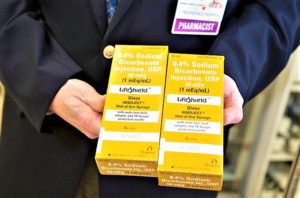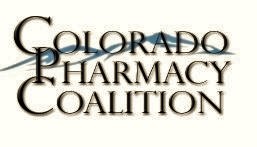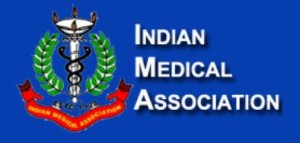- Medication errors reduced when pharmacy staff take drug histories in ER (healthcarefinancenews.com)
When pharmacy professionals, rather than doctors or nurses, take medication histories of patients in emergency departments, mistakes in drug orders can be reduced by more than 80 percent, according to a study led by Cedars-Sinai...Cedars-Sinai now assigns pharmacy staff members to take medication histories for high-risk patients admitted to the hospital through the emergency department...Injuries resulting from medication use are among the most common types of inpatient injuries at U.S. hospitals, affecting hundreds of thousands of patients every year. Errors in medication histories contribute significantly to such problems, and those errors can lead physicians to order the wrong drug, dose or frequency.
- Sandoz to donate up to $10 million in generics to Americares (drugstorenews.com)
Sandoz...announced that it would be donating up to $10 million in generic medicines annually to Americares, an organization that responds to those affected by poverty or disaster with health programs, medicine and medical supplies. The initial donation will include more than 25 Sandoz products for treatment of infections, cardiovascular condition, eyecare, skin conditions and musculoskeletal pain…Limited access to healthcare poses a significant barrier to long-term social and economic development around the world...Sandoz has partnered with Americares since 1989 and Novartis and Sandoz have donated more than $230 million worth of medicine to the organization since then...
- Nepal facing medicine shortages due to fuel crisis, blockade (hosted.ap.org)
Shortages of life-saving medicine because of political protests in Nepal that have blocked key roads could lead to a crisis, as hospitals have started to cut services…Hospitals are rescheduling surgeries by weeks, and patients are finding it difficult to get to medical facilities due to fuel shortages…Truckloads of medicine have been blocked at the main border crossing with India for the last few months by Nepal's Madhesi ethnic protesters…adding that Indian authorities were also not allowing the shipments across even at points where there are no protests…The...Madhesis have been protesting Nepal's new constitution, demanding to be given greater autonomy over local matters…Nepal imports about 60 percent of its medicine from India. The remaining locally made drugs also get most of the raw material and packaging from India.
- ‘Milking’ deadly jellyfish for new medicines (medicalnewstoday.com)
study of venom in medicine has traditionally been confined to understanding its effect as a toxin..But scientists are becoming increasingly interested in studying venom systems...to discover ingredients to make new drugs… a new technique for "milking" the Australian box jellyfish of its deadly venom,...method that he and his colleagues have developed is practical and highly efficient, and it promises to remove a major bottleneck in the field of jellyfish venom research.
- A Vital Drug Runs Low, Though Its Base Ingredient Is in Many Kitchens (nytimes.com)Answer to Drug Shortages (nytimes.com)
Hospitals around the country are scrambling to stockpile vials of a critical drug — even postponing operations or putting off chemotherapy treatments — because the country’s only two suppliers have run out...The medicine? Sodium bicarbonate solution..."As I talk to colleagues around the country, this is really a problem we’re all struggling with right now," said Mark Sullivan, the head of pharmacy operations at Vanderbilt University Hospital and Clinics in Nashville...Hospitals have been struggling with a dwindling supply of the medicine for months...Pfizer, has said that it had a problem with an outside supplier but that the situation worsened a few weeks ago. Pfizer and the other manufacturer, Amphastar, have said they don’t know precisely when the problem will be fixed, but it will not be before June for some forms of the drug, and in August or later for other formulations...Without an abundant supply of sodium bicarbonate, some hospitals are postponing elective procedures or making difficult decisions about which patients merit the drug...The situation with sodium bicarbonate solution appears to have begun in February when Pfizer, the main supplier, announced it was in short supply...the problem had worsened just after Pfizer went from shipping its generic injectable products from five regional warehouses to one national distribution center, part of a reorganization after its acquisition of the drugmaker Hospira...
- Google, Sanofi launch joint diabetes venture (healthcareitnews.com)
The partners will develop a comprehensive diabetes platform and combine software, devices, medicine and professional care to improve diabetes management for patients...Verily Life Sciences, a subsidiary of Google’s parent company, Alphabet and Sanofi, a French multinational pharmaceutical company launched Onduo - a joint venture to improve diabetes care...The collaboration will leverage Verily’s miniaturized electronics, analytics and consumer software with Sanofi’s clinical expertise to create innovative treatments for diabetes patients…Onduo is designed to...help people with diabetes live full, healthy lives by developing comprehensive solutions that combine devices, software, medicine and professional care to enable simple and intelligent disease management...
- Genomics offers promise of precision medicine (drugstorenews.com)
Human Genome Project has unlocked the complex mysteries of the human genome and unleashed a new era in personalized medicine and pharmaceutical research and development…pharmacy retailers must get out in front of that gene-based drug revolution or risk being left behind… potential health benefits of PGx (pharmacogenomics) are huge,.. So, too, is the field’s growth potential as an industry.
- How a Major Drugmaker Plans to Cure Disease… Without Drugs (fool.com)
Hacking into the body's nervous system may allow GlaxoSmithKline to commercialize an entirely new field of medicine...GlaxoSmithKline plc has the resources to pursue long-term bets in medicine that could eventually change the course of disease treatment and yield large payoffs...to literally eavesdrop on the body's electrical system and enter into the body's own internal conversations in order to heal disease...every organ has a nerve connection that regulates its function. Organs are controlled by patterns of electrical impulses transmitted through nerve fibers, but when organs dysfunction in chronic disease, the electrical patterns are different. That fact opens up the possibility that inserting patterns in nerves to certain organs can correct conditions that lead to disease...scientists are just beginning to realize the possibilities of using nerve signals to restore organs to normal function and actually treat disease...Bioelectronic medicines have the potential of doing to the pharmaceutical industry what biopharmaceuticals did to small molecules back in the 1980s…
- New Law Strengthens Collaborative Practice in Colorado (ashp.org)
Colorado Gov. John Hickenlooper...signed legislation, S.B. 135, which expands collaborative practice for licensed pharmacists and opens the door for health benefit plans to provide coverage for pharmacists’ services...S.B. 135 allows pharmacists to enter into collaborative practice agreements with physicians and advanced practice nurses and grants licensed pharmacists the authority to provide healthcare services to patients under protocols delegated by a physician or advanced practice nurse. The law also authorizes pharmacists to provide care under a statewide drug therapy protocol developed by the boards of pharmacy, medicine, and nursing...the law does not require health plans to pay for pharmacists’ services...Health plans must reimburse pharmacists in their provider networks for services that would be reimbursed if provided by a physician or advanced practice nurse...
- Medicine in India: Rampant Quackery, Baffling Drug Landscape (medpagetoday.com)
Medical errors happen everywhere. But in the world's largest democracy, stories of doctors being drunk, using rusty instruments or bicycle pumps during surgery, or ordering unjustified procedures are increasingly common… hard data are emerging that show how dismal medical care is for many in India, with providers routinely failing to diagnose common diseases and frequently prescribing useless and hazardous drugs.










